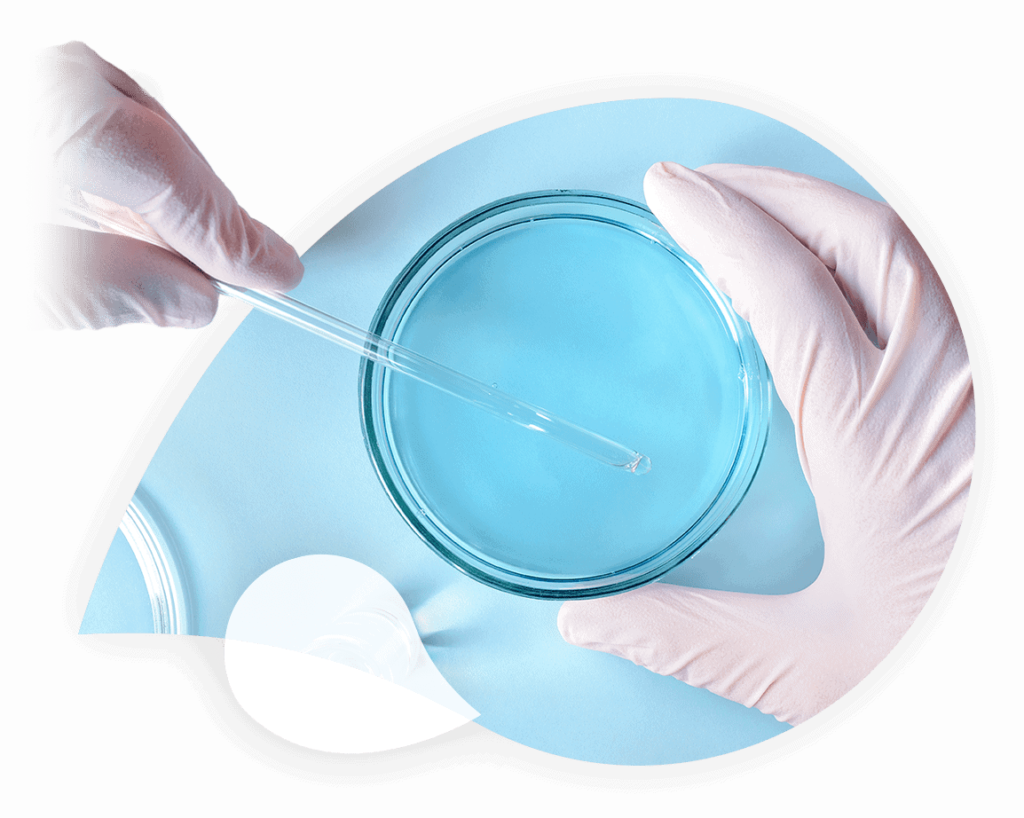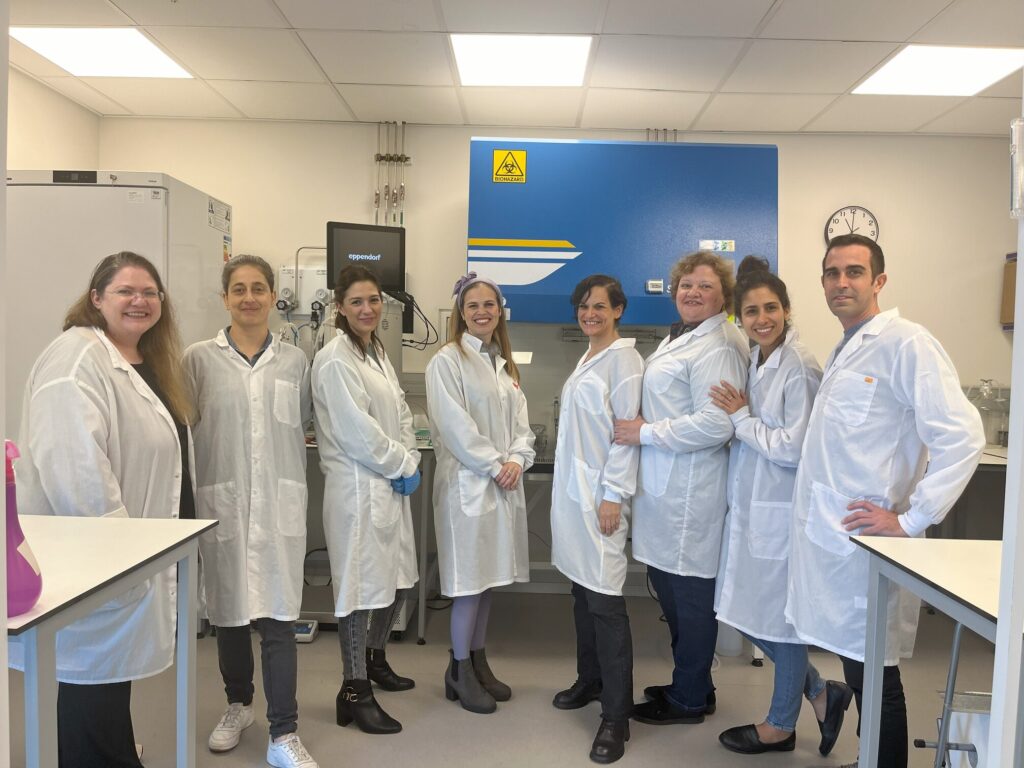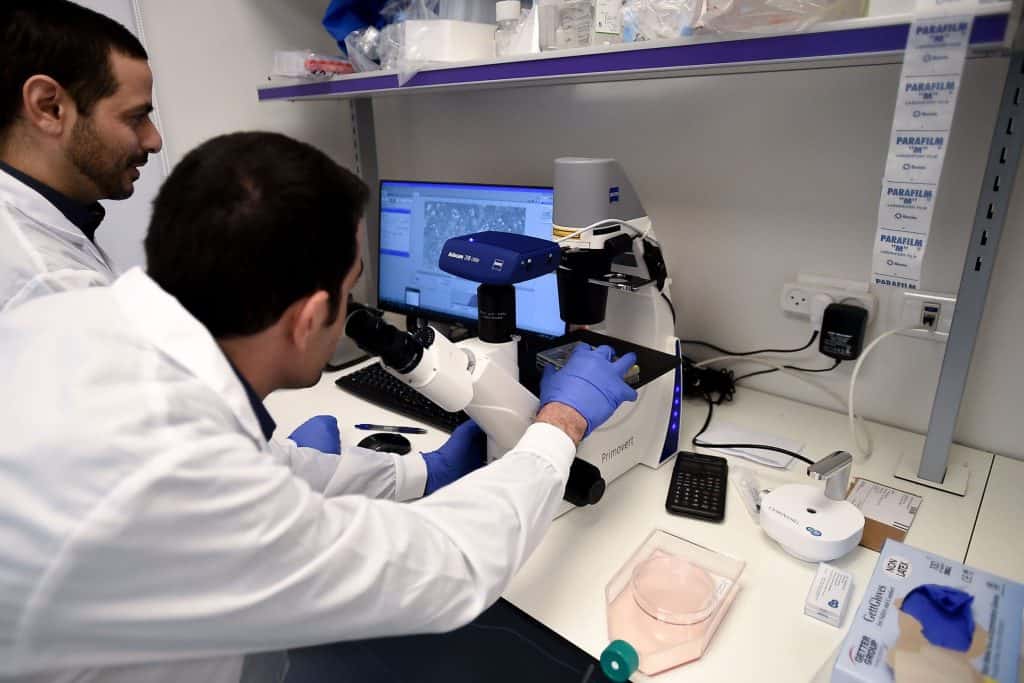Natal experts worldwide have been sounding the alarm over the growing number of mothers using baby formula instead of breastfeeding, arguing that the former is less healthy and nutritious for the child and even less beneficial for the mother.
But a company in Israel – ironically, often referred to as the “land of milk and honey” – has found a way to boost baby formula with nutrition found in breast milk.

After extracting just two cells from mammary gland tissue removed during breast reduction, Wilk focuses on encouraging these cells – which were originally responsible for producing milk in a woman’s body – to reproduce as much as possible.
“We are growing the cells in a dish and the cells are becoming immortalized, which means they can live forever,” Wilk CTO and cellular biologist Dr. Zohar Barbash tells NoCamels.
Once Wilk is satisfied with the amount of cells that have been produced, it gives them different “building blocks,” which help the cells produce either proteins, sugars, lactose or fats (lipids) found in breast milk.
“We are now focusing on fats because this is something that you cannot get in any other way,” Barbash says.
Those fats look somewhat like butter and can be dried and made into a powder that is added to baby formula in order to imbue it with more of the nutrients that are crucial for an infant’s development.
“These lipids are very important for the growth of the brain of babies and also their digestive systems,” says Barbash.
Wilk, which was originally known as BioMilk, was started in 2018 by its current chief security officer, Prof. Nurit Argov-Argaman of the Faculty of Agriculture, Food and Environment of the Hebrew University of Jerusalem.

Specializing in lactation physiology and milk quality, Argov-Argaman was originally studying how to improve lactation in cows. And to do so, she started examining bovine cells removed from the animal and placed in a petri dish.
“Once they did that, they saw milk coming out of the cells. So they had the idea, we could extract milk ex vivo without the cow,” Barbash says.
The idea of using cells to create milk was harder to realize than the founders originally thought. But once the company started focusing on just one component of the milk and not the entire product, they found they could get faster results.
“It’s easier in an artificial system to grow the cells which are identical to the real thing and then to teach them to take all energy and only produce fat,” Wilk CEO Dr. Avital Beck tells NoCamels.
Sign up for our free weekly newsletter
SubscribeWilk says it can also adapt the fats for children with allergies, with the “building blocks” being able to add or remove allergens like lactose, so that they are not included in the final product.
“The cells are not giving anything on their own so we have to give them building blocks for them to produce what we want,” Barbash says.
The name Wilk comes from a combination of the words “women” and “milk” – reflecting the women-led nature of the company, which has a female chief executive, and female heads of security, technology and finance. This, they believe, is important especially as Wilk is a breast milk-cultivating company.
Wilk – then called BioMilk – was the first cultured milk company to go public and is still publicly traded today.

Wilk’s most significant current investors include Coca-Cola Israel and French dairy giant Danone. Beck believes the major players understand the company’s competitive edge in the field, where most rival businesses are producing milk protein and not fat.
While Wilk is currently solely producing milk fat, it also plans to create other nutrients with the cells. To achieve this, the company has created what it calls an “artificial breast” made purely of human mammary cells.
The company is primarily looking to expand while lowering the costs of production. With the upscaling, they expect to open to more markets and get more strategic collaborations in the future.
It has now started a new round of fundraising from both public and private investors. Beck says this is crucial for scaling up, which means increased funding for the labs and equipment, and the scientists and experts who are working on the project.
“The industry needs a few kilos [of milk fat] a day; we don’t have that, we are still in very small dishes,” she says.

Wilk is currently working with cells taken from women and cows and both are producing the desired outcome – the women for baby formula and the cows for components that can be used in the food industry.
In fact, although it is not currently in the market, Wilk has successfully created the first cow-free yogurt using bovine cells to create milk fat. The yogurt retains the nutritional benefits only found in real milk fats, including the full complement of essential macro and micronutrients.
“We’re taking all the knowledge that was extracted from cellular biology for 40 years and we’re learning from it, how to use it for food,” says Beck.
Related posts

Editors’ & Readers’ Choice: 10 Favorite NoCamels Articles

Forward Facing: What Does The Future Hold For Israeli High-Tech?

Impact Innovation: Israeli Startups That Could Shape Our Future




Facebook comments